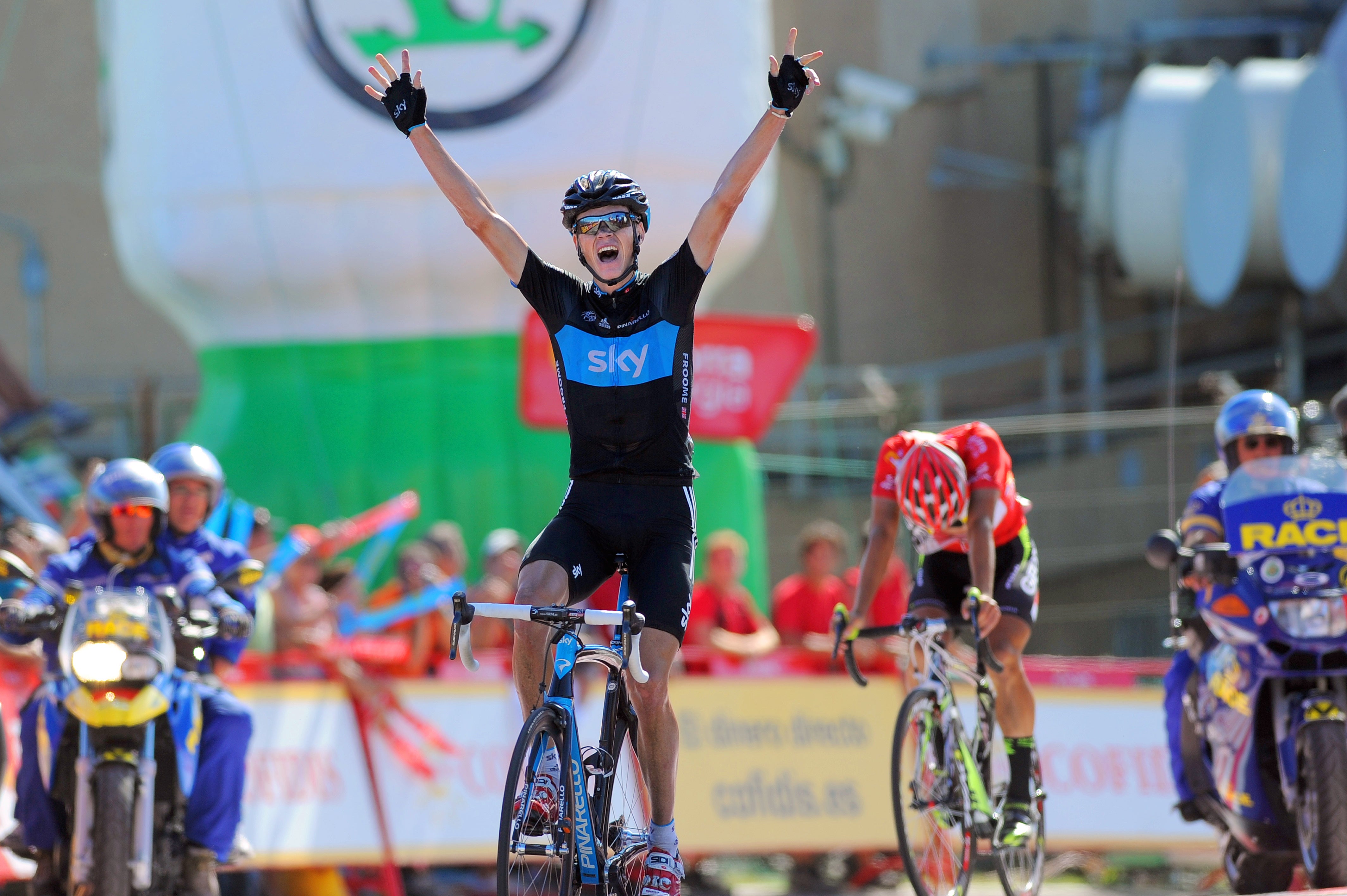Froome officially wins 2011 Vuelta, but no one is celebrating

Photo: Tim de Waele/Corbis via Getty Images
TOULOUSE, France (VN) — Chris Froome has been officially declared the winner of the 2011 Vuelta a España eight years later, but few are celebrating.
This morning as the 2019 Tour de France began to prepare for its 12th stage from Toulouse, the UCI officially declassified Juan José Cobo for abnormal anti-doping values in his passport. The Vuelta victory fell to Froome, who originally finished second at 13 seconds.
“There’s no need to over-analyze it, it is a bit of a strange one,” Team Ineos boss David Brailsford said.
Brailsford managed the Sky team that Froome rode for at the time. That year, Froome placed second and Bradley Wiggins third. Wiggins had been the first British grand tour winner at the 2012 Tour de France; now it is Froome.
“We never celebrate it, it didn’t feel like a victory at the time, but we were pretty pleased with two guys on the podium, and it felt like a breakthrough moment,” Brailsford continued.
“You never know, you change all of that and maybe the rest wouldn’t have happened. I’m happy with what we got.”
History is being re-written.
With the declassification, Wout Poels (Ineos) has won a grand tour stage — and a big one. Cobo lost his Angliru stage title.
Another Dutchman, Bauke Mollema (Trek-Segafredo) moved from fourth to third overall — his only grand tour podium finish in a long consistent career.
“It doesn’t do a lot, it doesn’t change anything,” Poels said. “It’s good that they take the cheaters out, of course, even so many years later, so that’s a good thing. For me personally, it’s not like you really think you won the stage.
“You didn’t put your hands in the air, you didn’t stand on the podium, I didn’t get my bonus! It’s nice to say I won on the Angliru but on the other hand you also didn’t really have all the podium and everything. That’s why you become a bike rider, to put your hands in the air.”
Cobo, 38, raced until 2014 but never won again. His only other grand tour performance of note was 10th in the 2009 Vuelta, which was also stripped.
“I think everyone had that feeling at the Vuelta,” Mollema said of his surprise at Cobo’s 2011 performance. “Also the year after that, he didn’t do anything more. Normally, a guy that wins a grand tour can then also finish in the top 10 of another grand tour or win other big races, but that was the only thing he did in those years. It was a bit strange.
“It would’ve been nice saying I stood on a podium at a grand tour. Now it’s even hard to say it, even if I am there officially now. It feels strange; it should’ve been much faster than eight years later.”